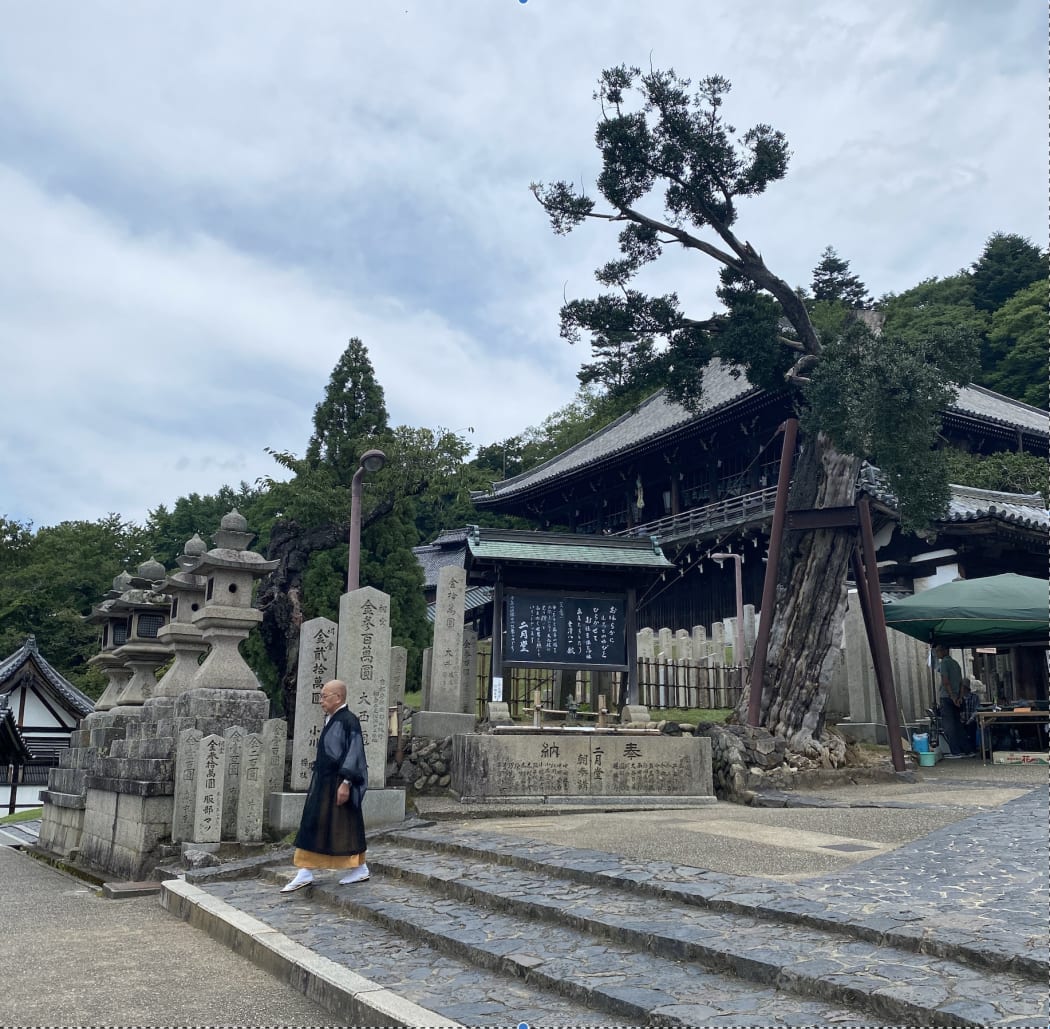
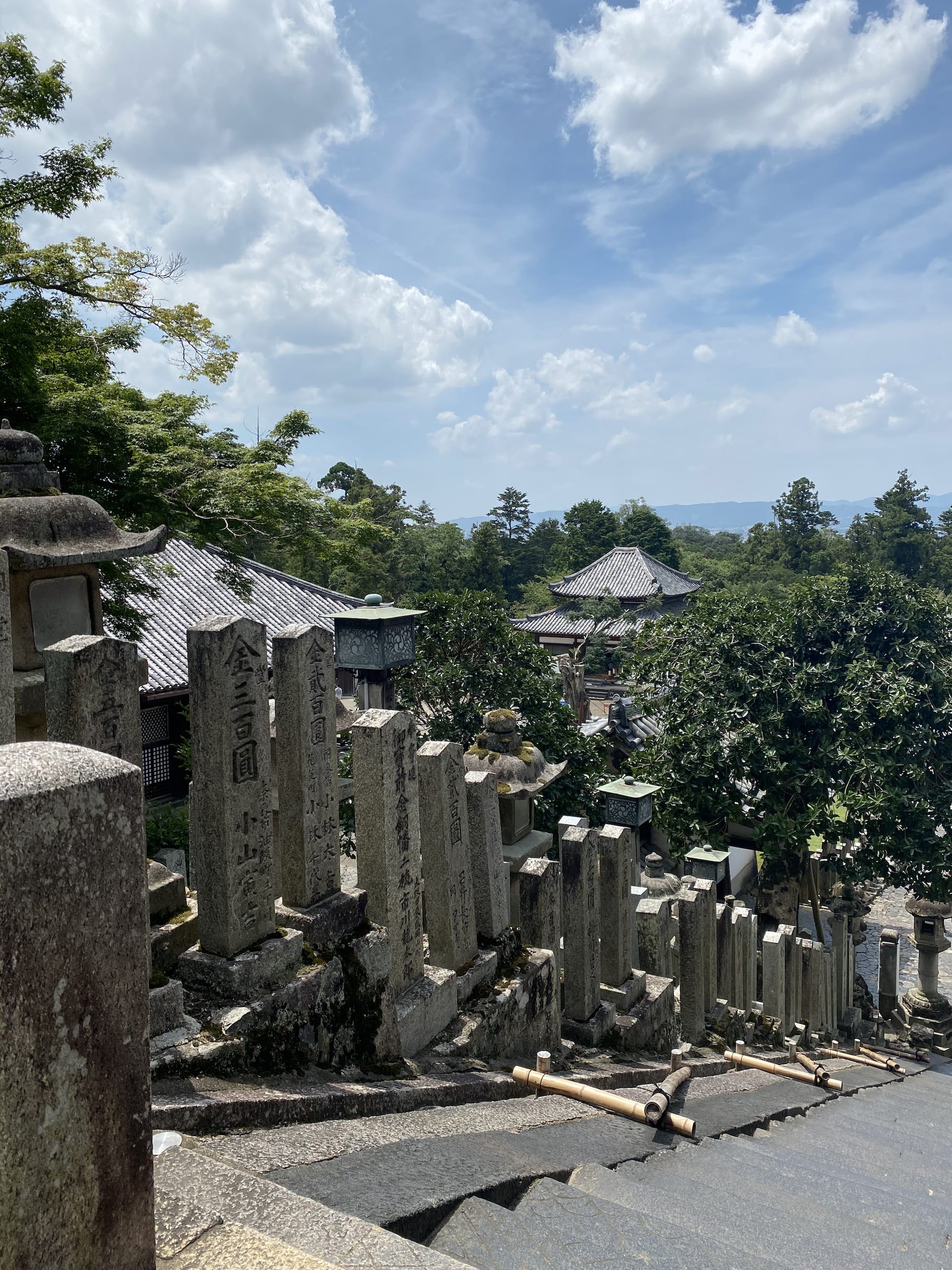
*Nigatsudo/Sangatsudo in the Todaiji temple in Nara, Japan.
Summer in Japan is marked by hot and humid weather, the drone of cicadas, and the celebration of Obon* throughout late July and August.
Though officially observed between August 13th and 15th, Obon spans the late-summer season, and marks a time when Japan’s famously fast-paced society slows down. Schools close, businesses typically shutter for several weeks, and many workers take vacations. Train stations are packed as families and friends travel to escape the heat of the cities, staying at traditional inns along the beach or in small mountain towns.
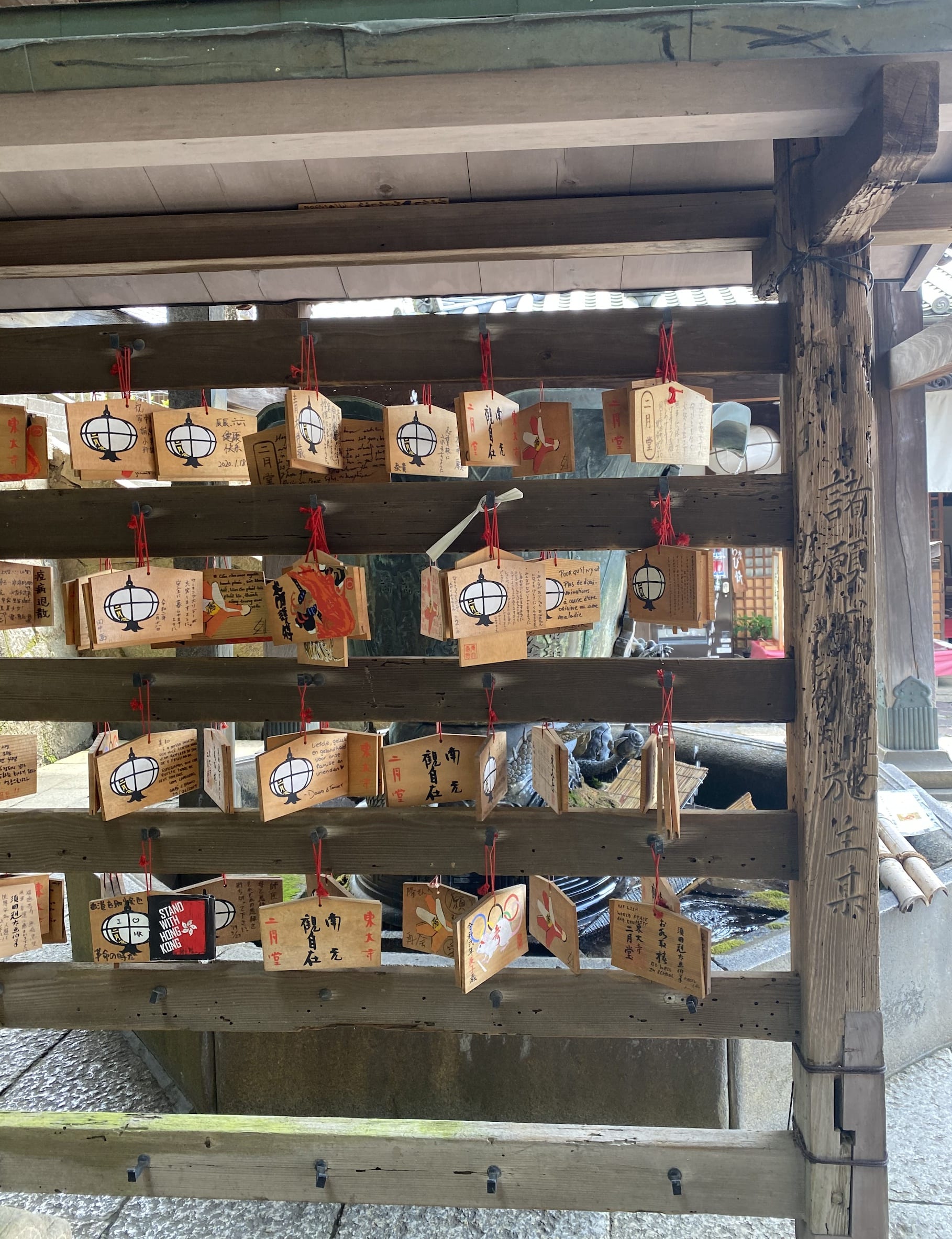
At its core, Obon, which dates to the seventh century, is a season and set of traditions that center around the family and tie Japanese people to centuries-old cultural and religious practices. Neighborhood cemeteries waft with incense and dark stone monuments brighten with sprays of fresh-cut flowers as families visit ancestral graves, a practice called ohaka mairi that stems from the holiday’s origin in Chinese and Buddhist rituals to honor one’s predecessors.
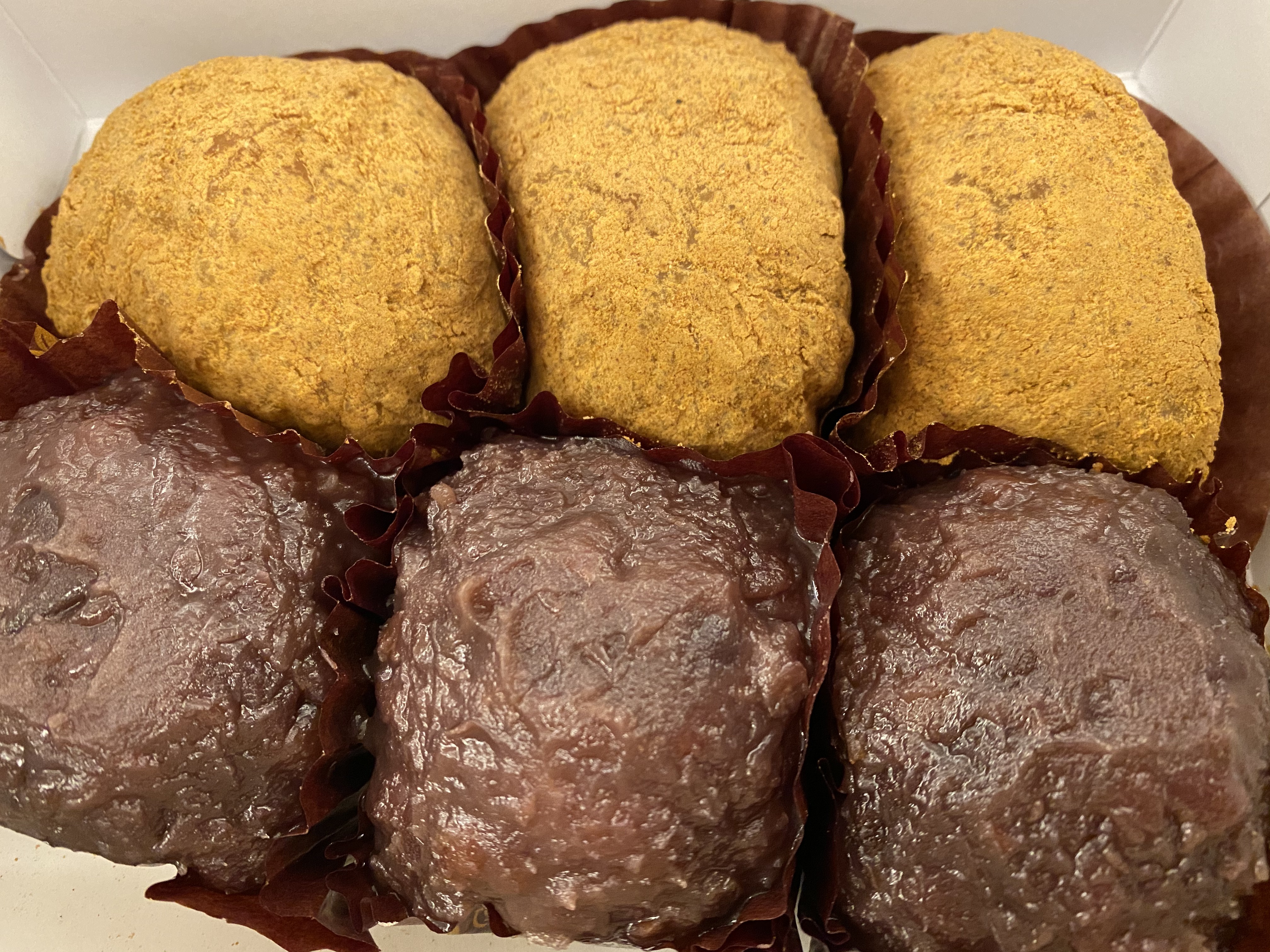
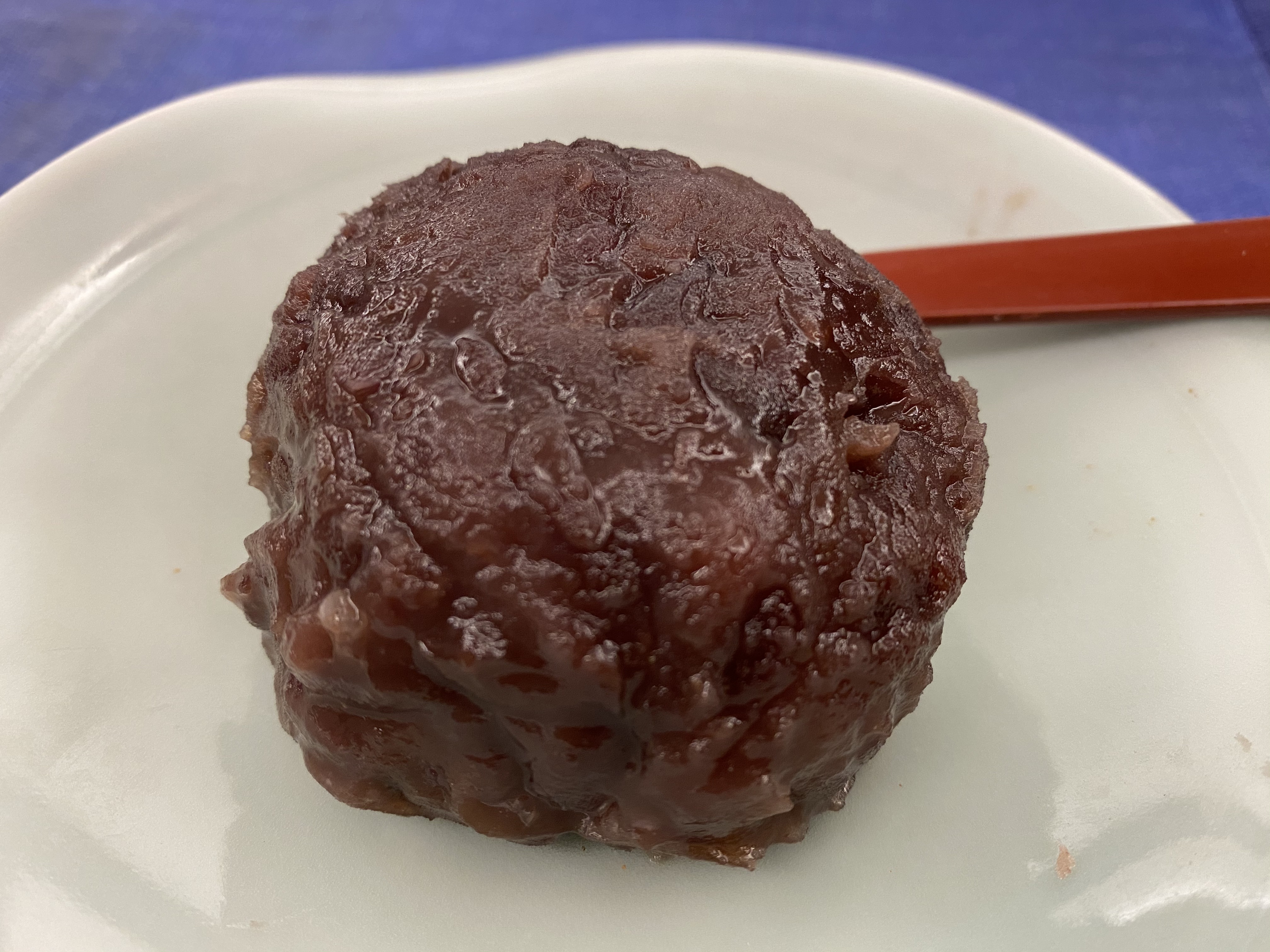
Floating lanterns, toro nagashi, glitter on the surface of rivers, representing the passing of the soul to the afterlife. Local sweetshops and department stores stock Obon treats, such as Ohagi, sweet mochi wrapped in adzuki bean paste.
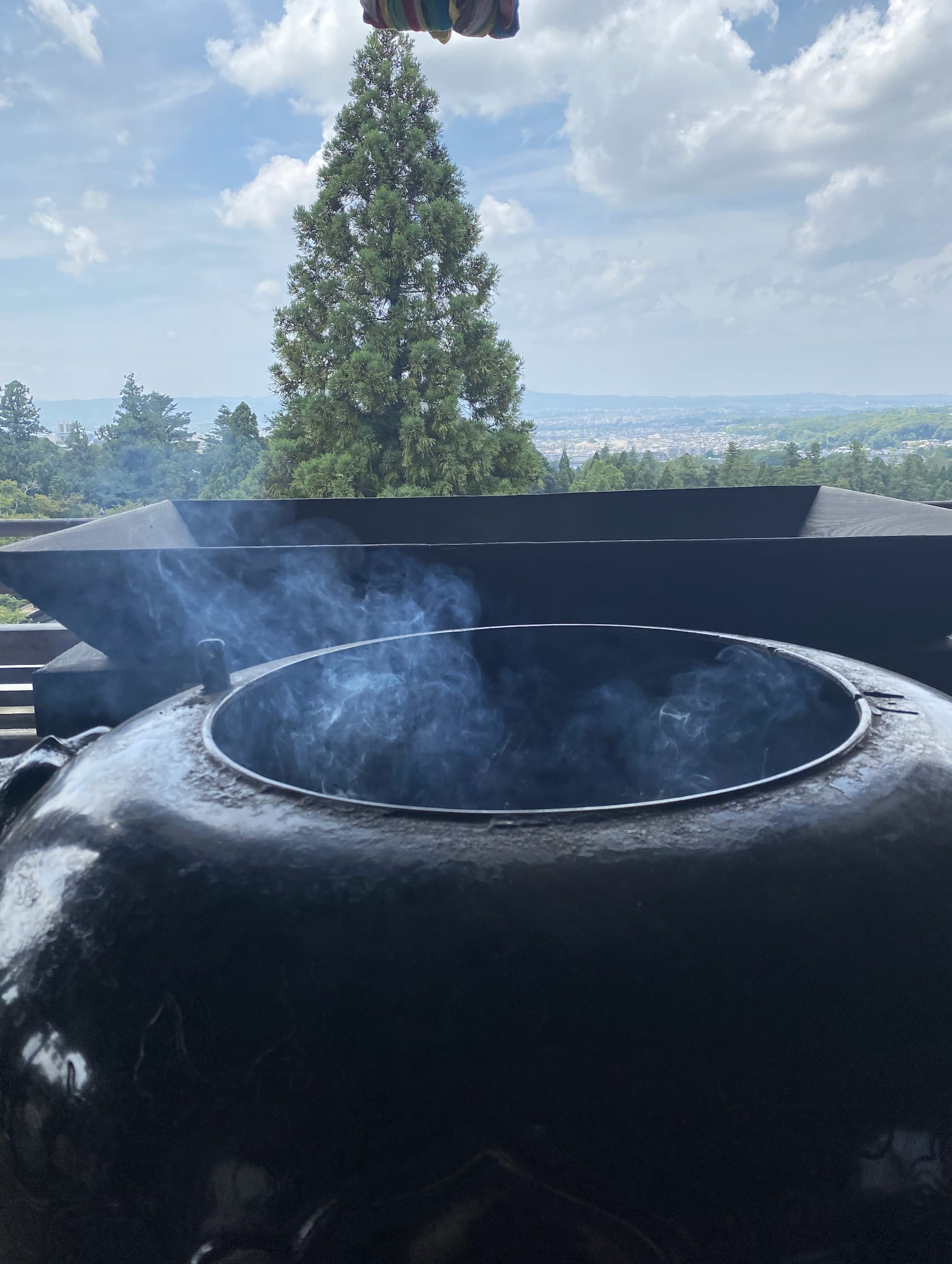
While temples and shrines hold their own celebrations to mark Obon, many of Japan’s summer festivals are homemade, community events held in parks or at schools, organized by neighborhood committees and drawing people and families from all over the neighborhood. School children perform recitals of taiko drumming or traditional dances; musicians play shamisen and other traditional instruments. Children and adults often dress in yukata, a lightweight kimono, or jinbei, a summer outfit made from cotton printed with traditional patterns, as they stroll through stalls offering games and festival foods like yakisoba, fried soba noodles, or chilled watermelon. As evening falls, paper lanterns are lit as festival-goers gather in a ring to dance Obon-odori to the beat of live drumming and strains of traditional songs.
*Obon, a Japanese festival that lasts three days, is a Buddhist custm to honor the spirits of ones ancestors
Contributed by Harrison Schley